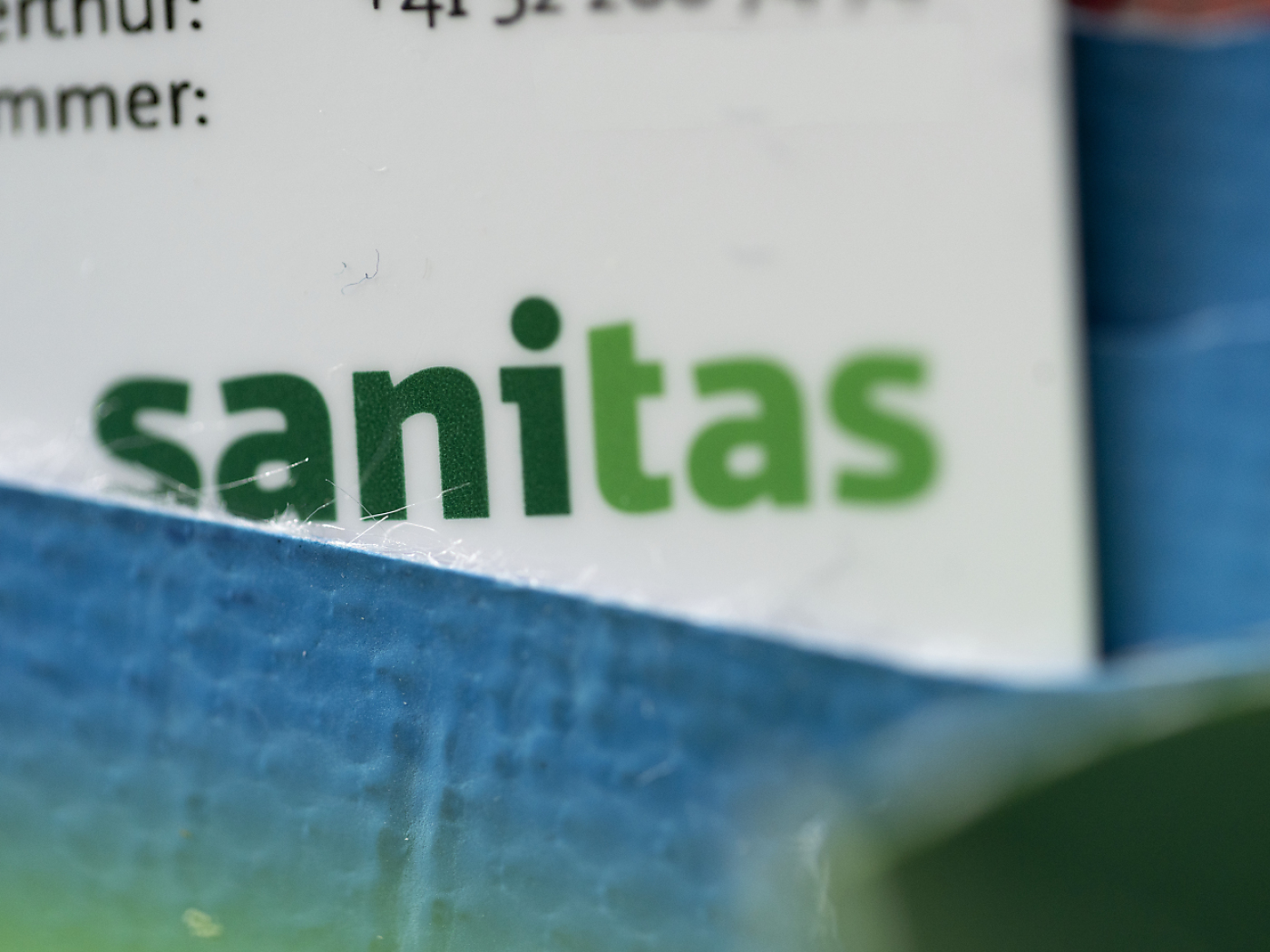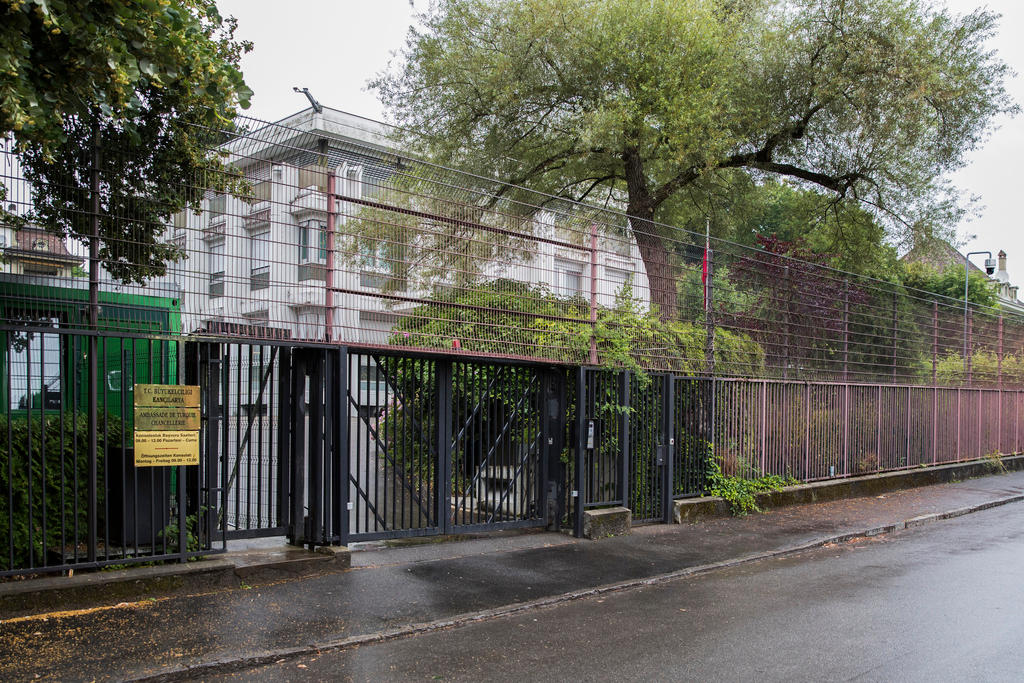Turkish embassy marks quashed military coup

Turkey’s ambassador to Switzerland, like his counterparts around the world, commemorated the failed ousting of President Recep Tayyip Erdoğan by honouring the 250 people killed while stopping the attempted overthrow a year ago.
Ilhan Saygili summoned reporters to his embassy in Bern on Friday and gave interviews with Swiss newspapers this week to defend Erdoğan, who has been in power since 2003 as prime minister and president, and the state of emergency that is still in effect. It authorises his administration to rule through decrees without getting lawmakers’ initial approval.
At a carefully staged news conference, Saygili showed reporters a nine-minute film with images of corpses on a bridge, a man falling to the ground after being shot in the head and others rolled over by a military tank. Afterwards, the ambassador called the coup “a clear attack on democracy”, a message clearly meant to curry favour in Switzerland, where direct democracy is an integral part of its identity.
Saygili defended the wave of arrests in his country, saying they were necessary to defend against the “terrorists” who follow the US-based Islamic cleric Fethullah Gülen. According to Saygili, 70,000 people are currently under arrest, including many judges and journalists.
Among those targeted by Erdoğan were tens of thousands of suspected followers of Gülen, a former Erdoğan ally. His followers are accused of carrying out the insurgency by infiltrating universities, schools and other state institutions over decades.
Gülen has been in self-imposed exile in Pennsylvania since 1999. He condemned the uprising and denied involvement, but said some supporters might have participated. The United States has rebuffed Turkey’s repeated efforts to extradite the cleric.
‘Balanced’ reaction
Saygili praised Switzerland for its “balanced” reaction after the coup attempt but acknowledged that relations between Switzerland and Turkey have not always been smooth. He expressed pleasure that a Gülen school in Zurich would be closed this year but stopped short of confirming that his government targeted the Gülen movement in Switzerland.
Among those who died in the insurrection that began in mid-July 2016 were dozens of special operations police, killed in an attack on their headquarters in Ankara. About 30 people who were behind the coup also are believed to have died in the failed attempt. More than 2,000 others were injured and are now considered by Erdoğan’s government to be “martyrs” of the coup.
“After the coup attempt many European countries have not understood what this event means for Turkey,” Saygili was quoted as saying in the Luzerner Zeitung on Friday.
Missing official
After Erdoğan crushed the attempted takeover, Turkish life dramatically changed. Erdoğan tightened his grip on the country, arresting about 50,000 people for their alleged involvement in the insurgency and firing or suspending more than 100,000 others from civil service jobs.
Erdoğan won a referendum in April to beef up the powers of his office, which struck fear among his critics who argue he is growing increasingly authoritarian.
“Switzerland should be the No. 1 country for understanding the referendum,” Saygili said. “Every year, you have a lot of referenda on all kinds of questions.”
Saygili said he did not know the whereabouts or status of Turkey’s former deputy ambassador to Switzerland, Volkan Karagoz, who reportedly sought asylum in Switzerland earlier this year and is among the Turkish diplomats who asked for protection from a purge of officials. Karagoz and his family apparently decided to seek asylum when he was recalled by the government in Ankara last month.
“I do not know where he is, just that he is not in Turkey,” Saygili said. “I do not know why he was fired, but the evidence is unambiguous. If he were innocent, he could be present at the examination commission.”
Turkey’s seven-member Commission on Examination of State of Emergency Procedures is a new body set up to decide matters related to the decree laws. Switzerland is among the European countries in which tensions escalated with Turkey as Erdoğan instructed surrogates to persuade expatriate Turks to back a campaign to extend his powers in the April referendum.
Espionage
In Turkey, Erdoğan is unveiling large monuments for the “martyrs” and delivering a speech to parliament.
Saygili has previously denied allegations that his staff also spied on Erdoğan’s opponents ahead of the controversial referendum, but he told Swiss public television, SRF, he would be willing to cooperate with a criminal probe into the allegations being carried out by the Swiss Office of the Attorney General if there was evidence of espionage.
In April, Basel police arrested one of their workers accused of passing to a third party internal data on people who had criticised Erdoğan.
The Swiss foreign ministry had warned that it would rigorously investigate illegal intelligence activities. Swiss news media also have reported that Turkish intelligence may have filmed or photographed participants at events at the University of Zurich in late 2016 and early 2017.
At his embassy on Friday, Saygili again denied the espionage allegations but noted that it was a public event.

In compliance with the JTI standards
More: SWI swissinfo.ch certified by the Journalism Trust Initiative





















You can find an overview of ongoing debates with our journalists here . Please join us!
If you want to start a conversation about a topic raised in this article or want to report factual errors, email us at english@swissinfo.ch.